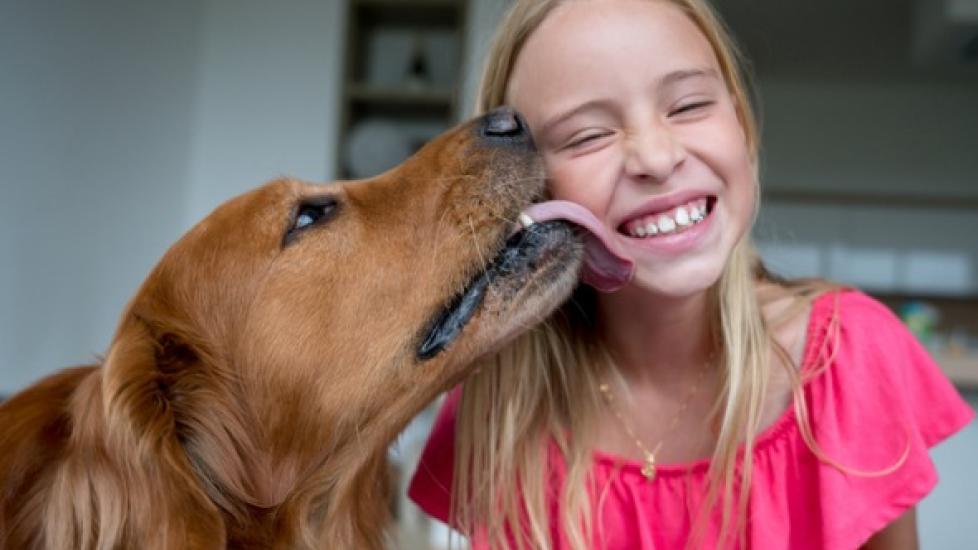Dogs are known for their curious and exploratory nature, often leading them to lick objects around them. But have you ever wondered why dogs seem to have an insatiable urge to taste everything in sight? This seemingly compulsive behavior is more than just a simple habit; it serves several important functions that are deeply rooted in canine instinct and biology. In this article, we’ll delve into the fascinating reasons behind your furry friend’s licking habits, shedding light on these mysterious actions that may sometimes leave us scratching our heads or laughing at their antics.
Understanding Canine Communication Through Licking
Licking is one of the primary forms of communication among dogs. It can be a sign of affection, submission, dominance, or even stress relief. When a dog licks another animal or person, they are essentially saying “I like you” or expressing a desire to bond. However, when directed towards objects, licking takes on different meanings:
- Cleaning: Dogs possess an innate drive to keep themselves clean. They use their tongues not only to groom themselves but also to maintain order within their environment by removing dirt from surfaces with quick, sweeping motions.
- Exploration: Just as humans might touch something new to investigate its texture and temperature, dogs employ their sensitive tongues to gather information about their surroundings. By tasting things, they learn what is safe to interact with and what should be avoided.
- Curiosity: Like children eager to discover the world around them, dogs are naturally curious creatures who want to understand how things work. Licking allows them to analyze the chemical composition of items through taste receptors located on their tongue.
- Anxiety Relief: Some dogs engage in excessive licking as a way to cope with anxiety caused by changes in routine, separation from their owners, or other stressful situations. The repetitive motion provides comfort similar to how humans might fidget with something while nervous.
- Marking Territory: While urine marking is more common among male dogs, licking can serve as a form of scent-marking too. Saliva contains pheromones that dogs perceive differently than people do—it helps establish boundaries and identifies resources such as food sources or resting spots.
- Pain/Discomfort: Sometimes, persistent licking could indicate underlying pain or discomfort due to allergies, skin conditions (like hot spots), or irritation from insect bites. Your pet may inadvertently stimulate endorphins during self-grooming which temporarily alleviate minor aches.
- Play Behavior: Playful puppies will often mimic motherly caretaking behaviors seen during nursing times by lapping up water droplets off furniture legs or floors – think of it as puppy practice!
Tips For Managing Excessive Licking Behaviors
If your beloved pooch seems overly fixated on certain areas or activities involving licking (to the point where it becomes destructive or disruptive), there are steps you can take:
- Environmental Enrichment: Provide plenty of toys and interactive activities so Fido doesn’t get bored between walks. Mental stimulation reduces overall activity levels including undesirable ones like obsessive licking.
- Health Checkup: Regular veterinary visits ensure early detection of any health issues causing discomfort. Treatments ranging from medication to dietary adjustments might help resolve underlying problems contributing to excessive grooming.
- Positive Reinforcement Training: Reward good manners instead of punishing bad ones. Consistency paired with treats works wonders in shaping desired behaviors while discouraging unwanted ones over time.
- Regular Exercise: Tired pets are less likely to exhibit problematic behaviors since physical exhaustion leaves little energy left over for unnecessary fussiness after playtime ends.
- Monitor Dietary Intake: A balanced diet rich in essential fatty acids promotes healthy skin and coat quality potentially reducing compulsions related to poor body condition.
Remember, every dog has unique personality traits influencing their behavior patterns – including whether they choose to lick excessively compared against others raised similarly under identical circumstances! As responsible guardians understanding both normal variations along with abnormal tendencies associated specifically with each individual case ensures optimal welfare outcomes across all species interactions alike!
